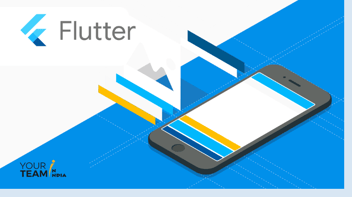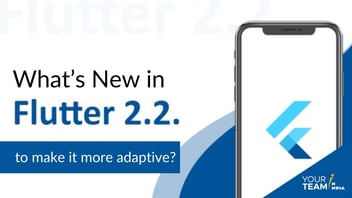Gone are the days when cross-platform development meant the app would be built either using React Native or Flutter. Today, Kotlin has managed to enter the competition, amplifying the confusion of business owners between React Native vs Flutter vs Kotlin.
The major difference between Flutter vs. Kotlin is that Flutter does come with some very valuable benefits like live-tracking, modular architecture, third-party plugins, and a variety of widgets. As a result, it takes less time for app development. In contrast, Kotlin takes more time in the development process due to the absence of widgets.
However, with Kotlin Multiplatform, you can build different multiplatform projects for numerous platforms, including desktop, web, and other native platforms.
No doubt, Earlier, both entrepreneurs and mobile app developers prefer to use React Native.
But as Flutter has matured and Kotlin became popular, businesses are now shifting from React Native to either one of these technologies.
We have already done the React Native vs Flutter comparison, and the latter has emerged as the winner. So, today we are going to make a Flutter vs Kotlin comparison to find out which technology you should prefer to build a cross-platform mobile app.
Why Flutter is an Excellent Choice?
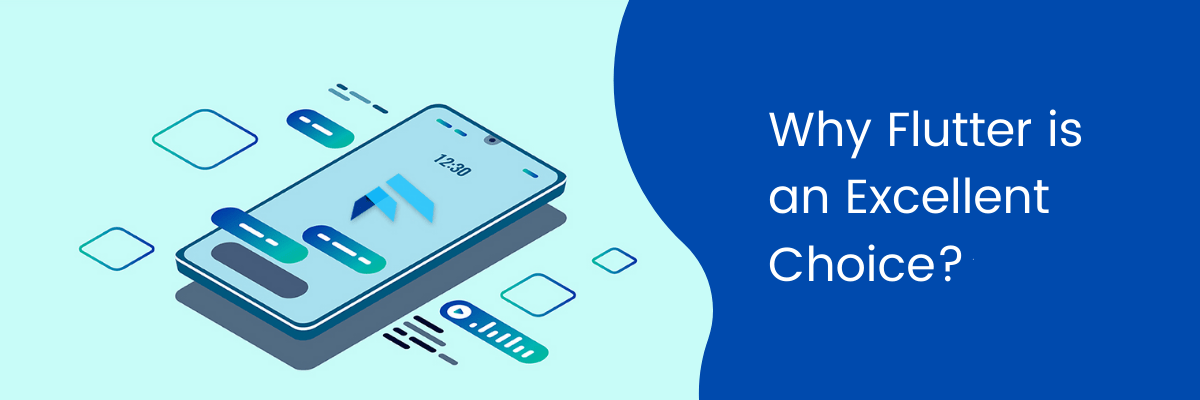 Released in 2015, Flutter is an open-source platform that had an intent to organize a marketplace for Google Fuchsia. It is a UI toolkit that enables developers to build beautiful applications for mobile, web, and desktop using a single codebase.
Released in 2015, Flutter is an open-source platform that had an intent to organize a marketplace for Google Fuchsia. It is a UI toolkit that enables developers to build beautiful applications for mobile, web, and desktop using a single codebase.
Following is a Sample of a Flutter Application
import ‘package:flutter/material.dart’;void main() => runApp(MyApp());class MyApp extends StatelessWidget {
@override
Widget build(BuildContext context) {
return MaterialApp(
title: ‘Welcome to Flutter’,
home: Scaffold(
appBar: AppBar(title: Text(‘Welcome to Flutter’),
),
body: Center(child: Text(‘Hello World’),
),
),
);
}
}
Google UI framework focuses on prevailing technological and market challenges. As a result of which Flutter became an ideal cross-platform app development framework within a very short time.
Top Features of Flutter App Development
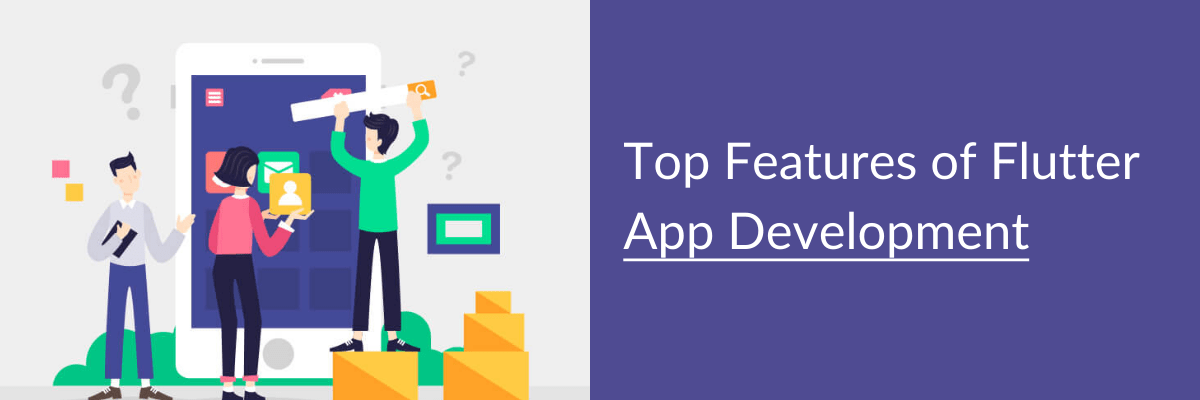
1. Free to Use:
Flutter is open-source and free to use, providing extensive documentation and community support.
2. Hot Reload:
This feature makes it easy for developers to make backend changes and analyze the front-end distinction. It determines whether the change is excellent with various components of the appliance or not.
3. Highly Customizable:
Flutter has an abundance of widgets, making it easy for developers to customize the aesthetics of your mobile app.
4. Less Development Cost:
Flutter aims to create native-like apps for iOS and Android with the help of a single codebase, making it a cost-efficient mobile app development solution.
5. Google Firebase:
Firebase integration with Flutter provides backend services access to the developers, including hosting, database, storage, authentication, etc. without the need to maintain your own server.
6. Ideal for MVP and App Prototypes:
Flutter helps in building Android and iOS apps in less time, cost, and energy. This is why Flutter is considered as the perfect option for MVP development and building prototypes. 
Want to get started with your app idea? Quickly on-board Flutter app developers from Your Team in India and kick start your app development process within a week’s time.
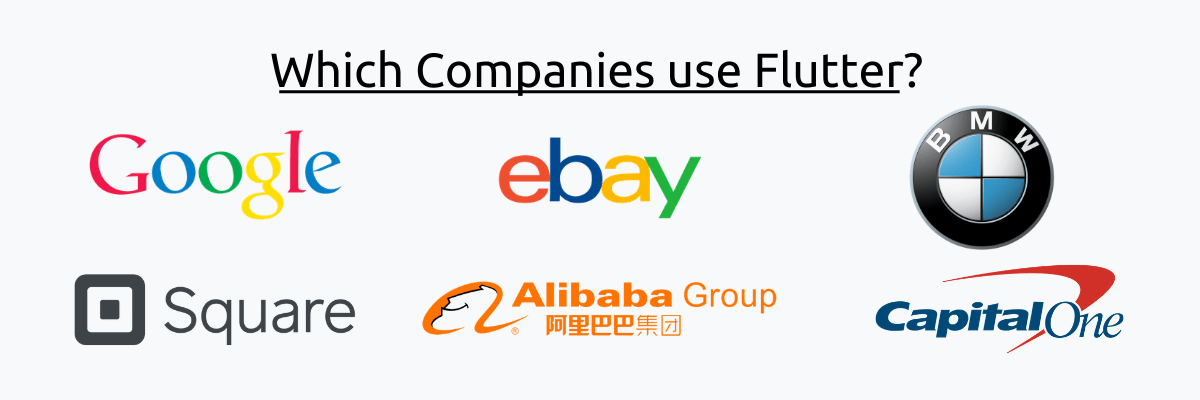 The list is not just limited to the companies inside the image. Some other companies that are using Flutter include Realtor, Tencent, The New York Times, Google Assistant, etc. That’s all about Flutter.
The list is not just limited to the companies inside the image. Some other companies that are using Flutter include Realtor, Tencent, The New York Times, Google Assistant, etc. That’s all about Flutter.
However, if you want to explore more about this Google UI toolkit, you must check out this post on Flutter development.
Why Kotlin Multiplatform is Gaining Popularity?

1. An SDK, not Framework
When you plan to build your app in Kotlin, there is no need to shift the complete app. You can hire developers well versed with Kotlin to first work on just a single module, and then move ahead with the other modules if everything works well.
2. Simple Language
Kotlin has its syntax quite similar to the programming languages like Swift, Java, Groovy, and Scala, it is fairly simple to understand the language.
3. Reuse of the Logic
This is not the only platform that allows separating UI and enterprise logic. Xamarin and React Native are other frameworks that also provide this kind of service. There is one thing that makes it different from others i.e. shared logic and libraries within the UI layer. This makes the Kotlin developers work together in the native surroundings:
- Swift and XCode for iOS
- JavaScript for the Internet
- Kotlin
- Android Studio
All this is done without utilizing any bridge in an extra native manner.
4. Native UI Expertise
Kotlin Multiplatform doesn’t demand any instructions for creating UI. The Kotlin developers can work on the design, appearance, and efficiency appliances similar to native.
5. Scalability and Flexibility
The developers can scale up the applications without utilizing any virtual machine (VM). This makes it an ideal choice for creating an app where scalability and flexibility are necessary.
How does Kotlin Multiplatform work?
Kotlin multiplatform is a feature of the language that allows it to be used for more than just Android app development. It allows developers to share code, data, and business logic across a variety of platforms, including iOS, Web, Linux, macOS, Android, and the Java Virtual Machine (JVM).
Although the idea of investing in Kotlin app development for cross-platform is still new to the industry, it has been embraced by a number of well-known companies.
What is the Difference between Flutter & Kotlin?
Flutter and Kotlin, both platforms have the ability to create amazing applications. Still, there are many differences that we will be discussing below:
Comparison Table Flutter vs Kotlin
| Features |
Flutter | Kotlin |
| Popularity |
More popular with 88.7k stars & 11.7k forks | Less popular with 31.1k stars & 3.8kforks |
| Released |
2017 | 2010 |
| Programming Language | Dart |
JVM, JavaScript & Native |
| Pricing |
Free & open source |
Free & open source |
| UI experience |
Best User Interface |
100% interoperable in Java |
| Testing Support |
Operates with Firebase (Baas platform) |
Rich set of testing feature |
| Performance | Excellent speed |
Better in security syntax & compatibility |
1. Popularity
Kotlin and Flutter both are open source platforms giving free access to everyone. This is one of the reasons why developers have a lot of curiosity about working on these platforms. Flutter is gaining more popularity than Kotlin and it can clearly be depicted from the GitHub presence.
This clearly depicts that Flutter gets an enormous momentum available in the market when compared to Kotlin.
2. Performance
Flutter:
3. UI Experience
Flutter:
4. Programming Language
Flutter:
Kotlin:
5. Pricing
Flutter:
The open-source platform, Flutter, and Dart are both free to use platforms. This helps in empowering the developers to view:
-
Documentation
-
Post queries in the development forum
-
Learn and implement code
Kotlin:
Want to reduce the overall development cost by up to 60%? Get in touch with us now & build your remote development team of either Flutter or Kotlin developers.
6. Testing Support
Flutter:
Flutter gives the user a rich set of testing features that do unit testing for widget while integrating the level. Having great documentation on testing, it also has an interesting widget testing feature. With the help of this feature, the user constructs widget tests to examine the UI, and operate them at unit test speed.
Kotlin:
When you are considering the backend development services, Kotlin is one such platform that has an advantage over the ones that are in the market. Although Flutter operates with Firebase, which is an efficient Backend as a Service Platform securing backend opportunities, Kotlin allows developers to create the backend code.
7. Integration
Flutter:
Flutter offers the functionality of creating an app and is compatible with both iOS and Android platforms with less code. This eventually makes Flutter the ideal option for MVP development while creating a prototype. You should test the waters beforehand.
Kotlin:
The multi-platform framework is within the native ecosystem. The hired mobile developers can operate the same tools and libraries that they use during native development. This involves Jetpack Compose and SwiftUI. This clearly depicts that they require third-party libraries and tools to bridge combinations with the native environment.
8. Community
Flutter:
Flutter is a platform that is constantly flourishing in the marketplace. The Flutter community is also increasing simultaneously.
Kotlin:
Google is developing itself to become Kotlin-oriented and this is one of the reasons why mobile app developers are getting inclined towards it. Not only this, but there is also a long list of Java apps that are rewritten in Kotlin having smart features. In short, Kotlin has been considered as the future of app building and development. Ready to digitize your business with a mobile app? Get in touch with us to hire mobile app developers & get started with your app development.
How will Flutter look if Kotlin supports Flutter?
import flutter.material.*fun main() = runApp(MyApp())class MyApp: StatelessWidget {
fun build(context: BuildContext) = materialApp {
title = “Welcome to Flutter”
scaffold {
appBar = AppBar(title = “Welcome to Flutter”)
center {
text(“Hello World”)
}
}
}
}
Who will rule the cross-platform app Development Market?
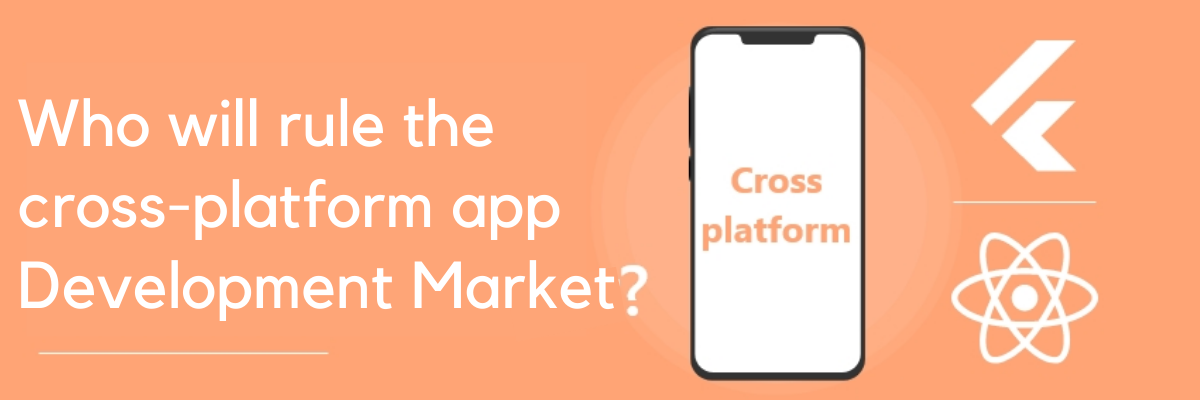
Who will win the race between Flutter and Kotlin in 2021-22? In fact, for the foreseeable future, Flutter vs. Kotlin will be contrasted more and more frequently. They both have a lot of advantages, but they also have a lot of drawbacks.
Nowadays, when it comes to Flutter vs. Kotlin, Flutter usually takes the lead simply because it is more well-known and has a larger support community. Kotlin, on the other hand, is only a matter of time before it becomes the next big thing. If you still have questions or are unclear about which option to choose, call a team of specialists who can assist you in making the best decision.
Your Team in India is a firm that works with clients in a variety of sectors and marketplaces to create apps. Our certified developers have extensive expertise with both technologies and are well-versed in the Flutter versus Kotlin debate. Share your intriguing concept with us, and we'll help you transform it into reality quickly and effortlessly! So, it is advisable to hire Flutter developers for application development.
Conclusion
In an era of various technologies and products, finding one that is flawless in every way is nearly impossible. As a result, the victor of this cross-development battle, Flutter vs. Kotlin, may have a lot of great features but also some drawbacks.
If really high UI levels aren't a need and you need to get the app up and running quickly, flutter is an excellent option. This is due to the fact that it provides end-to-end development. Things would be done in your best interests. However, nothing beats Kotlin for creating an upgraded and personalized user interface that is rich in business logic.
At Your Team In India, we have a pool of certified Flutter engineers. Need help setting up a dedicated team of Flutter developers in India? Connect with us our business head now and get a free consultation.





